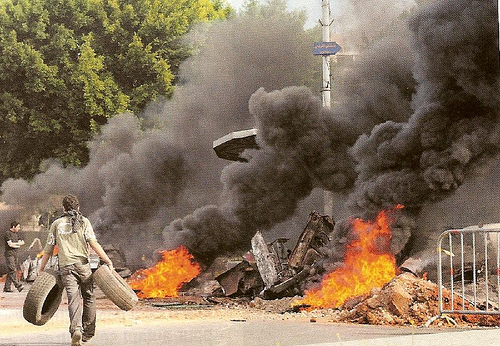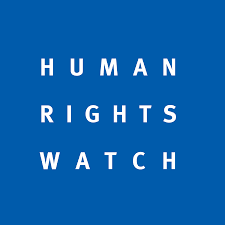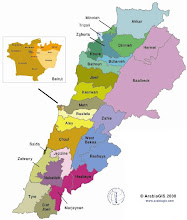 A lot of discussion has occurred regarding the two speeches that Hassan Nasrallah has given: the first on Friday where Nasrallah made the curious decision to focus his speech on the May events of last year and the second on Tuesday where he focused on the more expected subject of the upcoming Israeli maneuvers.
A lot of discussion has occurred regarding the two speeches that Hassan Nasrallah has given: the first on Friday where Nasrallah made the curious decision to focus his speech on the May events of last year and the second on Tuesday where he focused on the more expected subject of the upcoming Israeli maneuvers.While the Tuesday speech mentioned nothing of real note in what was said Nasrallah was fiery in his delivery. It almost seems Hezbollah are bored with the current calm that is prevailing over Lebanese politics.
The Friday speech was particularly strange. Nasrallah decided to focus much of the speech on the events of May, which seems curious given that March 14 where having such a difficult time in galvanizing their supporters on the memory of last May. Nasrallah caused particular consternation by stating:
"I say that May 7 was a glorious day for the resistance in Lebanon. Consequently, May 7 has put Lebanon on the right track towards solution and pulled it out of the stalemate that was imposed on it. "
These comments also put Michel Aoun and the FPM in a very difficult position with its own position and Aoun stated that he "understood" why Nasrallah would make such a statement.
Many seasoned analysts, such as Qifa Nabki and the Angry Arab, are at a complete loss to understand what on earth Nasrallah was trying to do in this speech. Angry Arab goes as far to say that this speech is giving weight to the argument that Hezbollah want to lose this election.
Oriente Lux believes that Nasrallah just wanted to make clear that Hezbollah was in the right during the May events. Explaing that Nasrallah wanted to make clear that May 7th (when Hezbollah undertook the military take over) should not be the focus by May 5th (when the cabinet decisions against Hezbollah's telecommunication network) was made.
Personally I think it was a case of over confidence and a political miscalculation, which to Nasrallah's credit are not frequent occurances. The result of his speech could be that he gets bums off seats and into voting booths for March 14. Those people that are not for the March 14 coalition but cannot tolerate Nasrallah stating that the ""May 7 was a glorious day" will now be more likely to put their vote in that booth or take the money being offered.











